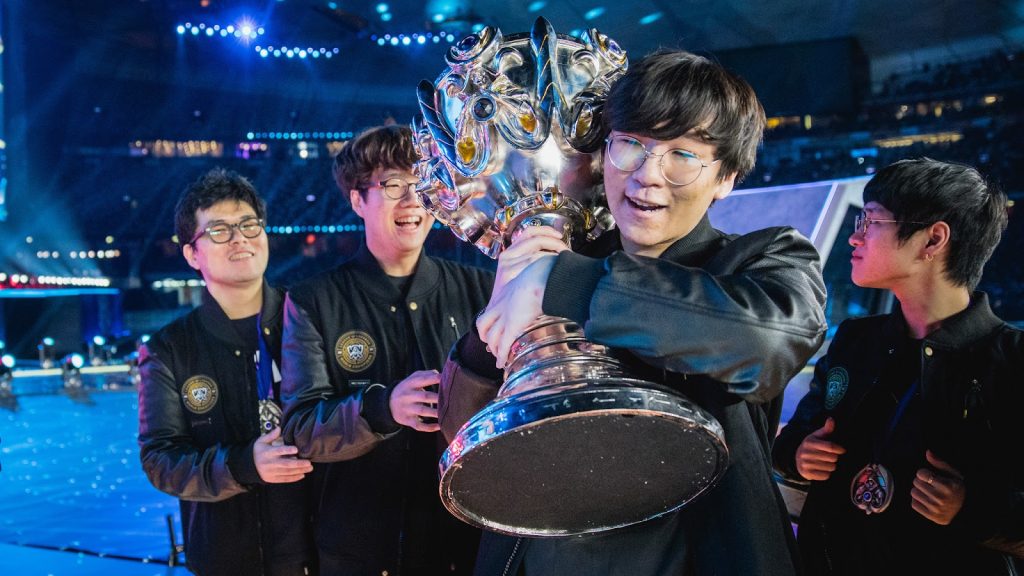
The news is spreading: the esports winter is upon us. Yet despite being discussed rigorously by media, stakeholders, and professionals, the concept of an ‘esports winter’ divides opinions and causes uncertainty.
We’ve attempted to clear the fog surrounding esports’ coldest season and dissect how the esports winter has, and will, affect the industry.
What is the esports winter?
This seemingly simple question involves much nuance. The term appears to have first been introduced in late 2022 by VentureBeat journalists Jordan Fragen and Erron Kelly in their article ‘The Esports Winter is coming. Diversify to survive’ based on Fragen’s live panel ‘Navigating the esports winter’.
At this point, esports had already seen a streak of major layoffs and organisations reporting losses. Fragen put a widely accepted name to the industry downturn, though few esports business experts can agree on its nature. Some consider it a predictable recession in a cyclical industry after years of growth. Others call it esports’ rebirth, reckoning, or even death.
While industry-wide consensus about the exact nature of the esports winter is lacking, it is undeniable that esports is facing major challenges. Since the end of 2021, the frequency of layoffs and esports companies shutting down has increased. We’ve seen shutdowns or mass layoffs from esports organisations, media outlets, tournament organisers and others who have cited the current esports climate for their decisions or fates.
In addition, many esports organisations of all sizes struggle to make a profit, with some reporting millions of dollars in losses yearly. Esports’ current struggles sit in stark contrast to the years of industry hype and booming investment that took place in the latter half of the 2010’s.
While the resulting financial uncertainty has led some major investors and sponsors to shift their esports investments, it is too early to tell the long-term fate of the industry. For example, multiple media outlets reported that BMW would cut spending on esports sponsorships in 2023, amid wider concerns over ROI from esports partnerships. However, the Middle East branch of BMW partnered with esports organisation Nigma Esports in October, and many other major automotive brands maintain active esports sponsorships.
This uncertainty is also reflected in the esports and gaming job market. According to Hitmarker, the number of total jobs in gaming declined by over 19% from 2021 to 2022. Despite this grim picture, it is paramount to understand that the esports winter affects various games, company sizes, and sectors very differently. While small-to-medium-sized businesses struggle the most, many larger companies are expected to weather the storm — though some major esports names, such as CLG, have fallen.

What caused the esports winter?
Esports has experienced unfettered growth over the last decade, with year-on-year revenue growth rates consistently in the double digits in the latter half of the 2010’s, according to data from market research firm Newzoo. But in 2023, esports’ boom period is behind us. What caused the shift from a golden summer to icy winter? Once again, the answer is multifaceted.
Esports carries great potential as a growing industry with young, tech-savvy, more affluent fans that are said to be harder to reach via traditional marketing methods like TV. However, many companies have failed to adequately monetise their audience.
For example, with unsuitable business models often based on those of traditional sports, and heavy reliance on sponsorship funding, esports organisations have left themselves vulnerable. The early investment hype fuelled by esports’ explosive growth allowed these organisations to survive. However, as investors become more selective, unsustainable business models no longer suffice.
Another hurdle is the unmatched position of game publishers in the ecosystem. Whereas no company owns football, the likes of Riot Games and Valve can and do exercise total control of their games’ development and licensing. Publisher decisions, such as switches to different broadcasting platforms, can have major consequences on a game’s esports scene. Moreover, it can be argued that esports is not a priority for most game publishers. After all, the majority of gaming revenue is derived from the base game itself, rather than its esports ecosystem, so publishers sometimes make game-related decisions that negatively affect their esports scenes.
It is also worth noting that the current macroeconomic climate has exacerbated the esports winter. Rapidly rising inflation and fears of a recession have led to increased layoffs and plummeting investment in many industries, particularly the broader tech industry, not just esports.

How do we solve the esports winter?
How does esports best navigate the cold and bring forth spring? Although the topic of the esports winter continues to divide opinions, discussions surrounding it appear to have shifted towards a more solution-oriented perspective. In August, industry figures Avi Bhuiyan, Bryce Plum, and Jake Lyon published ‘The Esports Reckoning’, a collection of essays examining the causes of the esports winter and paths forward for its future.
They argue that the esports winter is a market correction that will require extensive changes to industry standards. Most stakeholders agree that the industry needs revised, reliable, and diverse revenue streams. Some esports organisations have already expanded their value proposition with apparel brands and education services to become less dependent on sponsorships.
Similarly, publishers and tournament organisers may want to better capture the value of their customers. Potential avenues include better monetisation of online viewership through digital items, ticket sales and unique viewer perks — or making esports more enticing for a broader audience. As of now, many esports titles, such as Overwatch, are largely limited to an audience of hardcore, invested fans. In contrast, games like Rocket League offer a viewing experience accessible to an audience unfamiliar with the game. Combining accessible viewing experiences and storytelling could help esports reach an audience beyond the gaming community.
Additionally, to cut losses, esports leagues may want to move away from modelling business strategies after traditional sports. While traditional sports and competitive gaming share similarities, the two have crucial differences. For instance, established sports, such as football, remain popular for centuries, whereas an esports title can go out of fashion in a few years.
Finally, some commentators have argued that the role of publishers could be revisited, for example, by campaigning for better revenue sharing for esports-related in-game item sales. The unique position of publishers might be inevitable, but esports stakeholders can devise business models with revenue streams independent of publishers’ decisions. For instance, organisations may build their audiences upon compelling player, creator and brand personas instead of growing game-based fandoms. The ability to pivot games without losing out on fans and revenue will likely be integral in the years to come.
With the esports winter upon us, the industry is facing a period of drastic change. New strategies and experimentation are necessary to navigate this season of reduced investment and downsizing successfully. The current picture looks daunting — but alert businesses might yet witness, and profit, from the return of spring.
